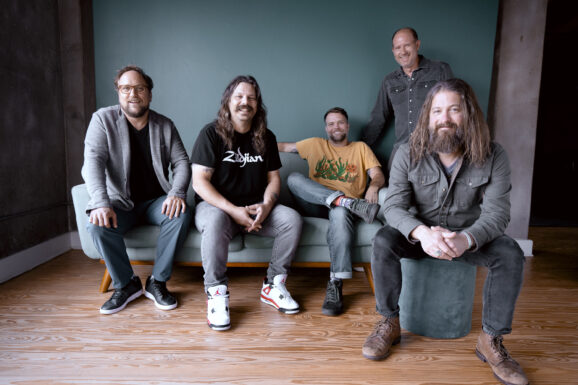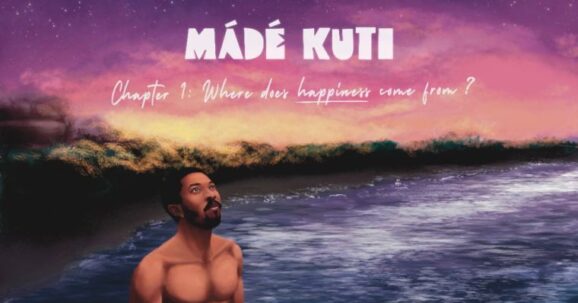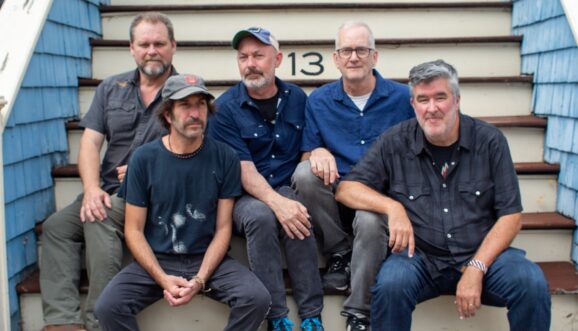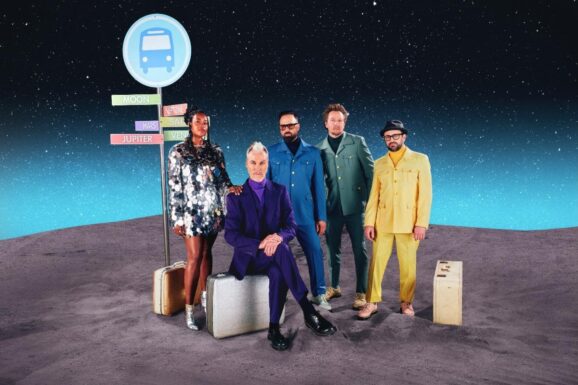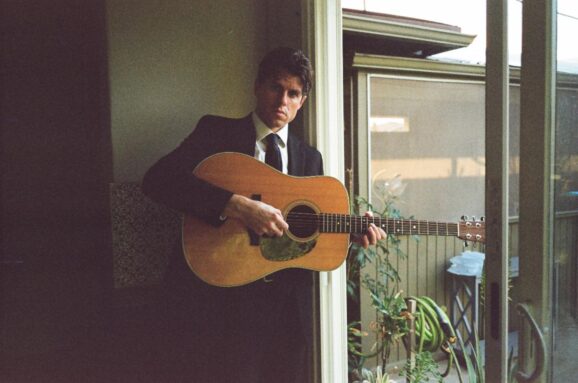You’ve seen many collaborations between bassist Scott Colley and drummer Brian Blade on these pages, typically backing Danish saxophonist Benjamin Koppel. The two have long collaborated with pianist Edward Simon, going back to groups involving saxophonist David Binney and guitarist Adam Rogers three decades ago. Recently, this trio appeared to wide acclaim along with a string octet at the Detroit Jazz Festival, where Blade was the artist-in-residence.
Among the four guests that appear with the trio on Three Visitors., Simon has long been associated with saxophonist Chris Potter in the SF Jazz Collective and percussionist Rogerio Boccato. The title almost implies otherwise, that the three trio members are meeting each other, but the concept of ‘visitors’ is much heavier in this context. It’s the idea of transportive music that music, in a spiritual sense, allows us to enter spiritual realms beyond just the physical. It’s also the idea of how you treat the other. When a visitor comes to your home, you give that person your utmost attention and respect. Here, that translates to intense, focused listening and a high level of interaction that extends the other’s ideas.
This session began post-pandemic and ran the gamut from boisterous postbop to neo-soul-inflected tunes to the avant-garde. The trio confesses to taking inspiration from trios led by Ahmad Jamal and Bill Evans to the threesome of Bill Frisell, Joe Lovano, and Paul Motian. Simon’s rather dreamy, wistful “Nostalgia” opens, coursing through bright and somewhat melancholy passages. Already, the mind might be drifting off to far-off places. You’ll hear subtle support from Blade and expressive pizzicato runs from Colley. The stage has been set. Blade contributes the minimalist, somewhat spacey ballad “Kintsukuroi,” which takes its name from restoring broken pottery. Once you know that, the piece’s single notes and fragmented nature make more sense as the group reshapes them into something entirely new, again with Colley responding to Simon’s lead with his own potent statement.
Colley, who was the bassist in Andrew Hill’s sextet in the late ‘90s and early 2000s (see our review of Andrew Hill’s A Beautiful Day, Revisited) points to Hill’s idiosyncratic, daring compositional style as a significant influence that pervades the jagged but harmoniously dark “Ellipsis” where his richly toned solo again is a standout along with fierce kit work from Blade that brings it to a definitive climax. Colley also penned the folk-infused, Motian-like “The Thicket,” where he and Blade have a vigorous dialogue that Simon joins only intermittently until toward the end when he freely improvises. Colley authored the title track, which seems to have the most of Hill’s style of his four, with he and Blade leading into Simon’s off-kilter piano that initially seems tentative but eventually locks all three in tightly. Colley’s fourth piece in the closer, “Far Rockaway,” brims with drama and several edgy moments of tension and release.
The other two outstanding pieces feature guests. Simon’s “You Are” is filled with emphatic chords and Colley’s usual elegant lines but takes on a new face with Potter’s fiery entry. As Blade points out, Potter is always ready, or as he puts it, “the ink is always flowing.” Unexpectedly, a spoken word verse arises at the end as Jana Dagdavan narrates the qualities of self. Perhaps the most pivotal track is the collaboration between Simon (music) and Stevens (lyrics) on “I Wanna Be With You.” Srevens’ breathy, sensual vocal finds a balance between neo-soul and romantic Brazilian music, amplified by the percussion team of Blade and Boccato and Simon’s steel drum-like tinges on the piano. It is entirely different from any of the pieces, and it is by far the most memorable to these ears.
This is another one of those ‘can’t miss’ piano trio outings, given the talent at play, but the guests extend the breadth of the offering, taking it to an even higher level.

